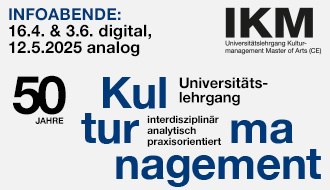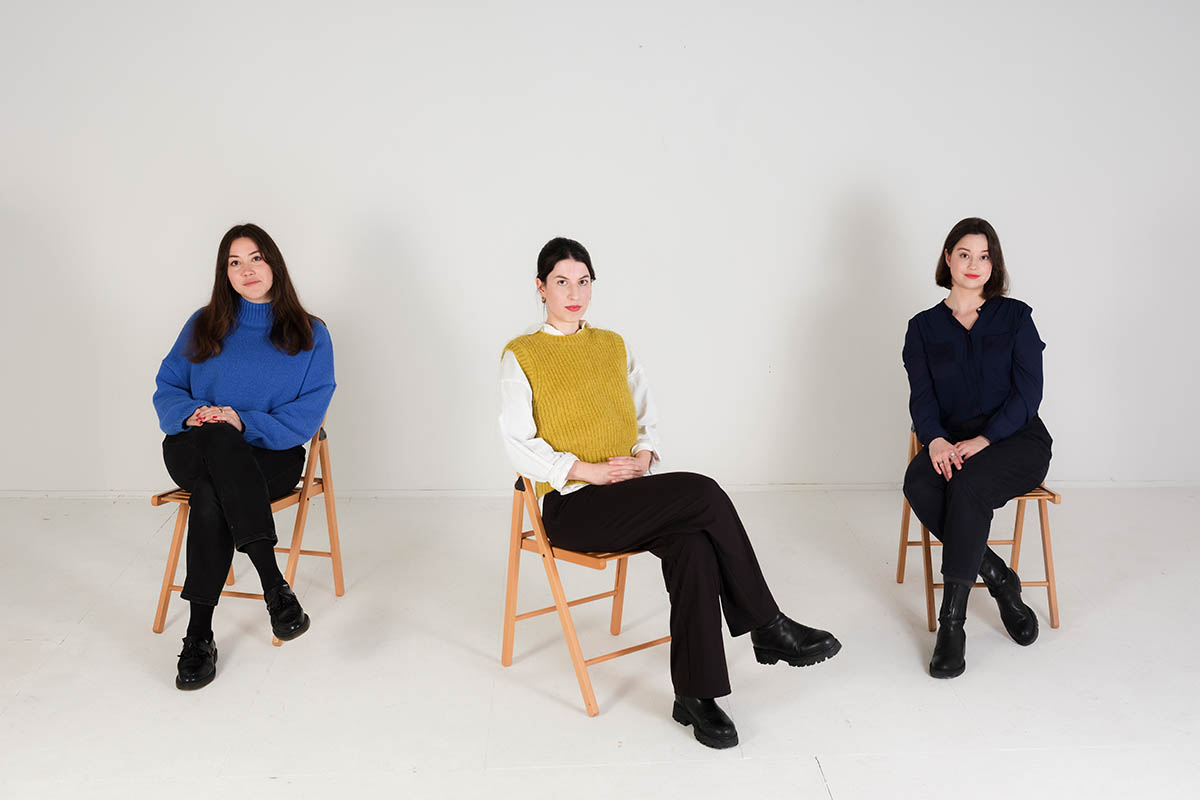
The interview is complemented by the collective’s iPhone shots from last year – offering a personal look at everything from the creative process to the festival itself. This year’s topic, „Comfort Zone“, opens up a world of interpretations – but maybe it’s also the answer to the questions you’ve been asking yourself.
For the second year in a row, the team behind the ETC. magazine will take over the artistic direction of the Ljubljana Art Weekend program. What changes will there be this year? What have you learned from last year’s feedback?
Building on last year’s edition, we’ve tried to deepen our collaboration with local initiatives and the art community, as well as inviting guests from other fields to ensure that the programme speaks to a wider audience beyond the local art crowd.
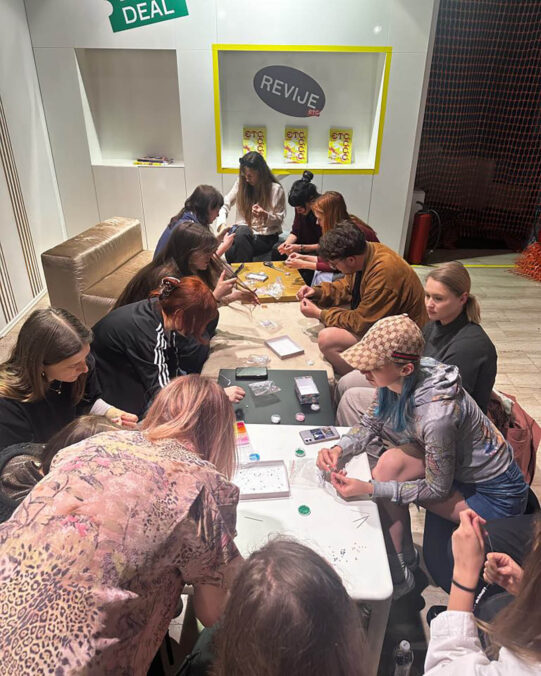
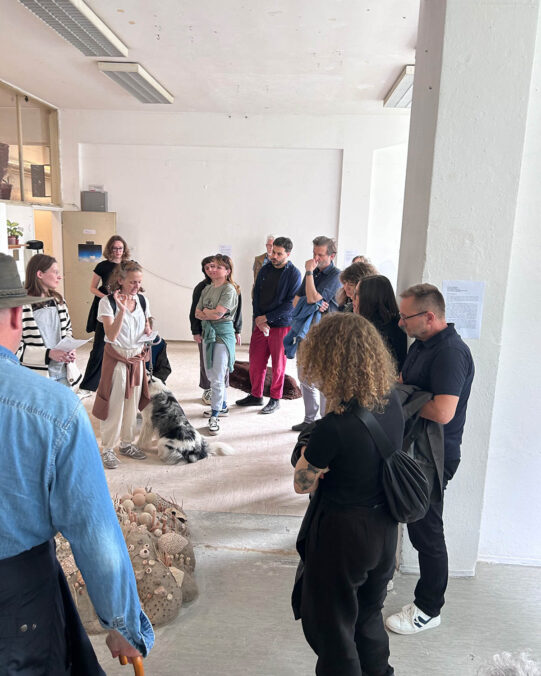
Based on last year’s feedback from guests and local partners, we decided to incorporate an even more curated programme – various guided tours targeting different audiences and events that connect different places in the city. For example, we’ve extended Artwalks into a new format called OFF THE MAP, which takes guests to a more remote parts of Ljubljana – this year we are visiting the Šiška neighborhood – and, through a curated walking tour, introduces the artistic initiatives and organisations in this area, offering an insight into how a particular community in the city operates.
Another important aspect was to involve more international guests in the different formats from the Meet Cute, Artwalks to the discursive programme, creating a dialogue between the local and international scene.
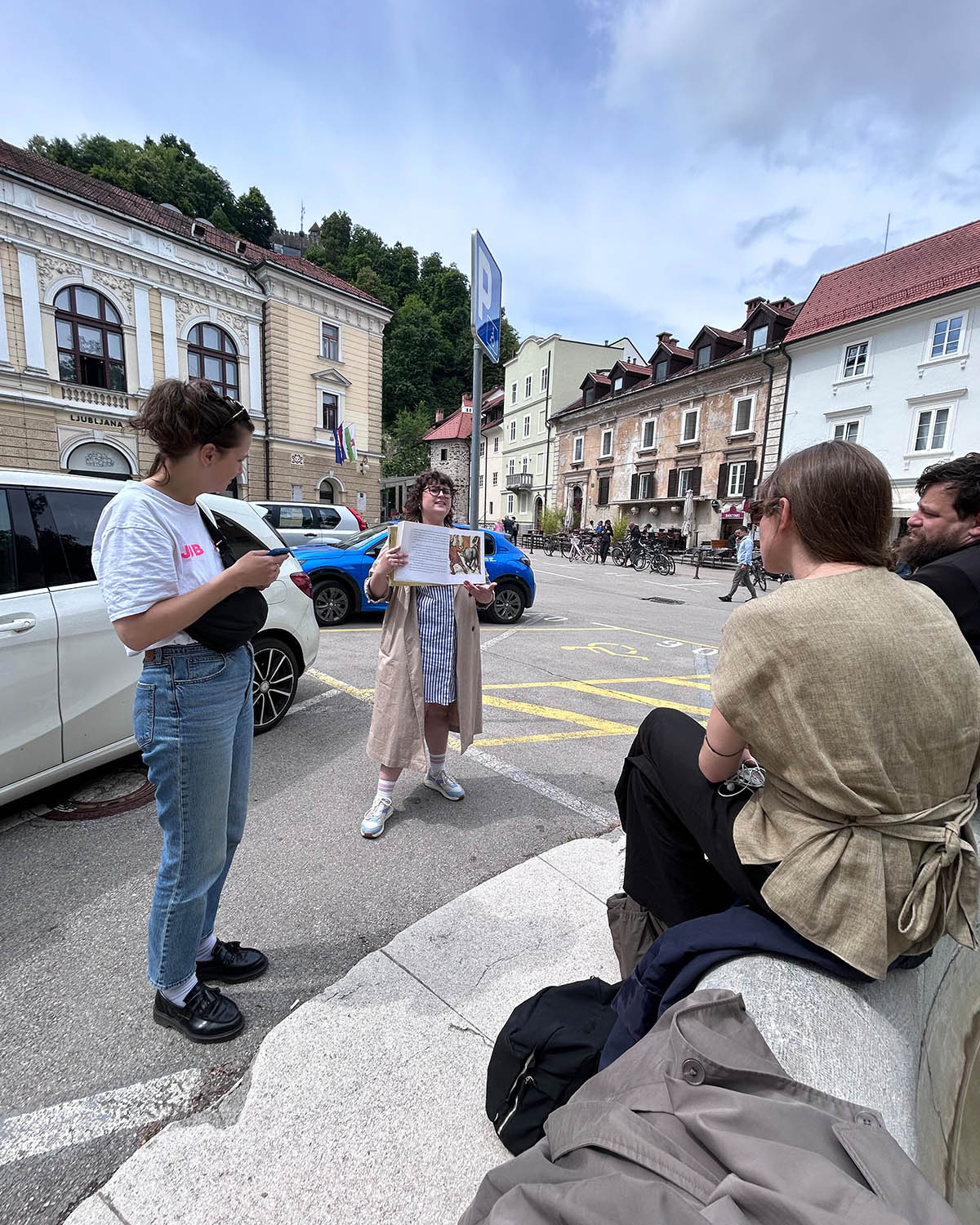

What is personally very important to you? What criteria did you use to select the artists for this year’s edition?
For the ETC. exhibition, it was important to show different positions on the chosen topic of this year’s issue, so this year we worked with artists who see comfort zones as reliable spaces of safety, and apply care, even in seemingly small or personal ways, as a radical act. In times when reproductive rights, freedom of movement, LGBTQ+ rights, labour unions, and environmental protections are under threat, the selected artistic projects highlight the importance of the community aspect and interpersonal relationships.
When inviting artists and other participants of Ljubljana Art Weekend, we are very interested in connecting voices from the wider region we like to call “from the Balkans to the Baltics”. We believe our bonds can always be stronger and can lead to exciting collaborations and exchanges, given our similarities as well as the differences we can learn from.
This year’s theme is ‚Comfort Zone.‘ When was the last time you stepped out of your personal comfort zone?
Exploring this topic, we’ve come to realise we find ourselves out of our comfort zones quite often. The polycrisis we live in, or (at this time) observe, if we’re lucky, is enough to keep us on edge and aware of the fact that the comfort zone is a privilege for too many. We are therefore turning our gaze back to strategies of forming and defending comfort zones as places of security and opportunity.
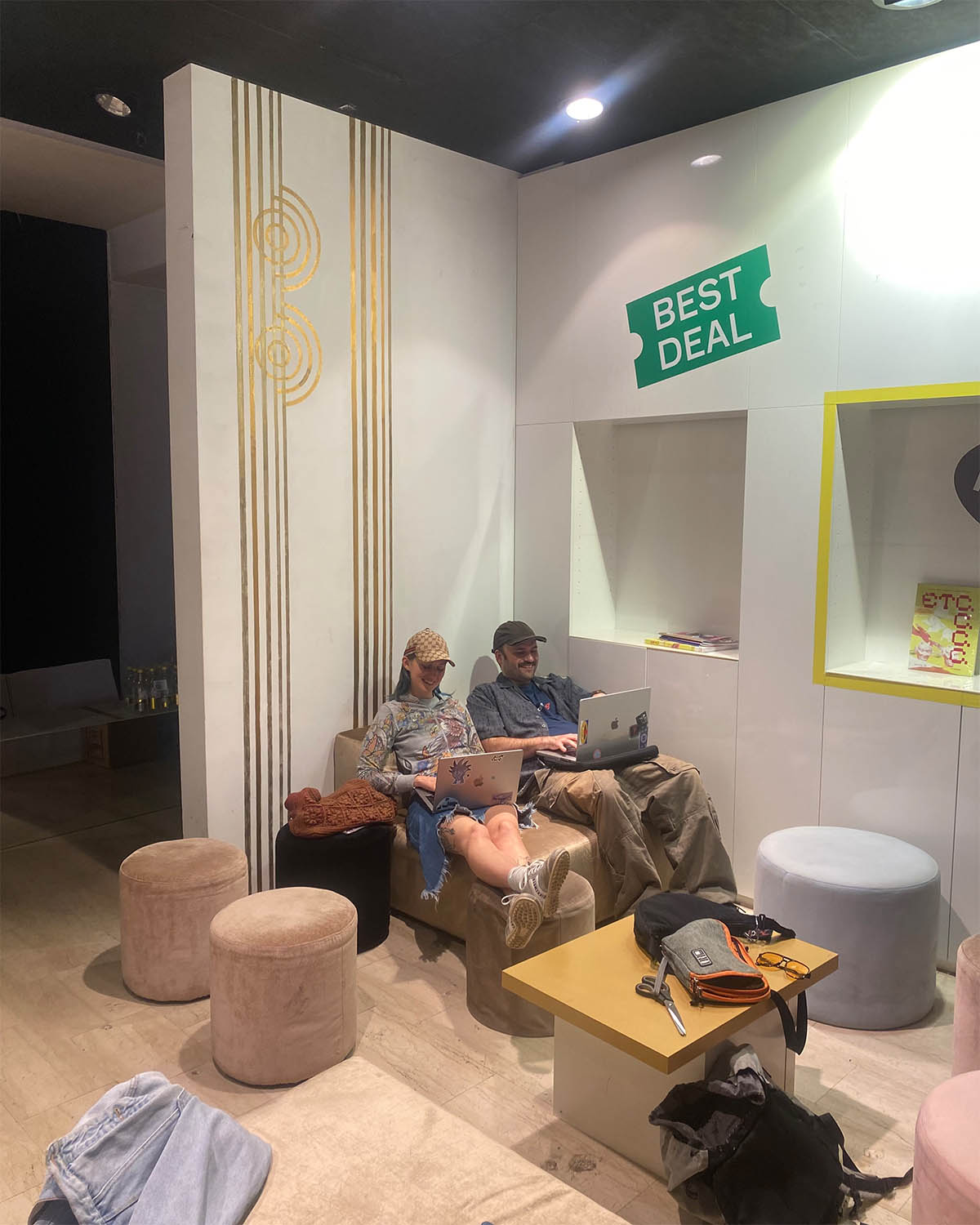
What activities help you relax and clear your mind?
As a collective, our best ideas come from relaxed and unburdened conversations. When we need to be creative, we like to leave Ljubljana for a short while, and we often find that a change of environment gives us just the beneficial distance we need to see what our next steps should be.
Do you have any hobbies that are not related to art?
Of course – we’re all avid fiction readers, concert-goers, and drag show aficionados, although that is considered art as well! We’re friends, not just colleagues, and while opportunities for non-work-related socialising are few, we think those very moments are the basis of our way of working.
The program explores biological and chosen families. How do you view the evolution of family dynamics, and how is this reflected in contemporary art?
The changing perspective on the idea of family is well-represented in contemporary art. Generally, it’s been a rich and often quite moving contemplation of what makes a family a comfort zone despite traditional norms that tend to be limiting and discriminatory. Contemporary art is not only able to show the dangers of confining a family and its members to their traditional roles and expectations, it can also show the beauty of a broader grasp of a family unit, of nurturing relationships, mutual support, and the ability to grow surrounded with care and understanding.
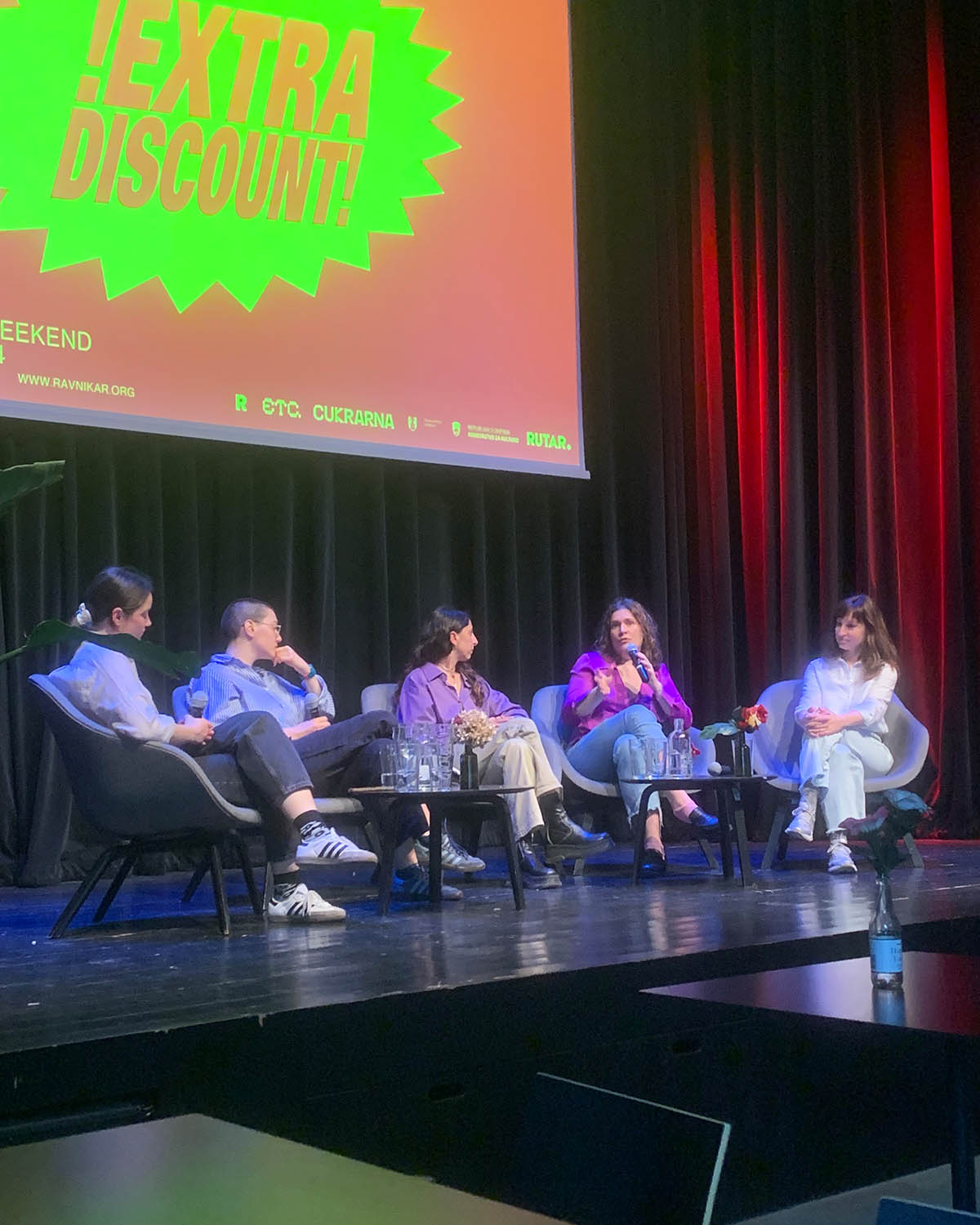
How do you balance local cultural influences with global art trends, and are there specific regional practices you aim to highlight?
We live in a world that has, in many ways, never been more connected and, hence, smaller. Global art trends tend to reflect our common reality and therefore often influence regional practices, but we can still observe how specific visual languages as well as concerns are being raised locally. In that sense, we are very interested in local artistic expression as it can say a lot about the society – artists are usually keen observers, interpreters, and co-creators of the world we live in. We do want to emphasize the local and regional artistic production as we believe it deserves more international attention, as well as more exchange within the region itself.
Vienna and Ljubljana are very well connected by train. For those who want to travel to Ljubljana, what should they definitely see there? Is there also a cool club scene?
Yes, that is true, there are many historical as well as current connections between our cities. Even though Ljubljana is a cozy and walkable city, it offers a great variety of cultural events, lively bars, restaurants and other spots, where you can find Žižek in a random bar and Dončić playing basketball in Šiška if you tried to.
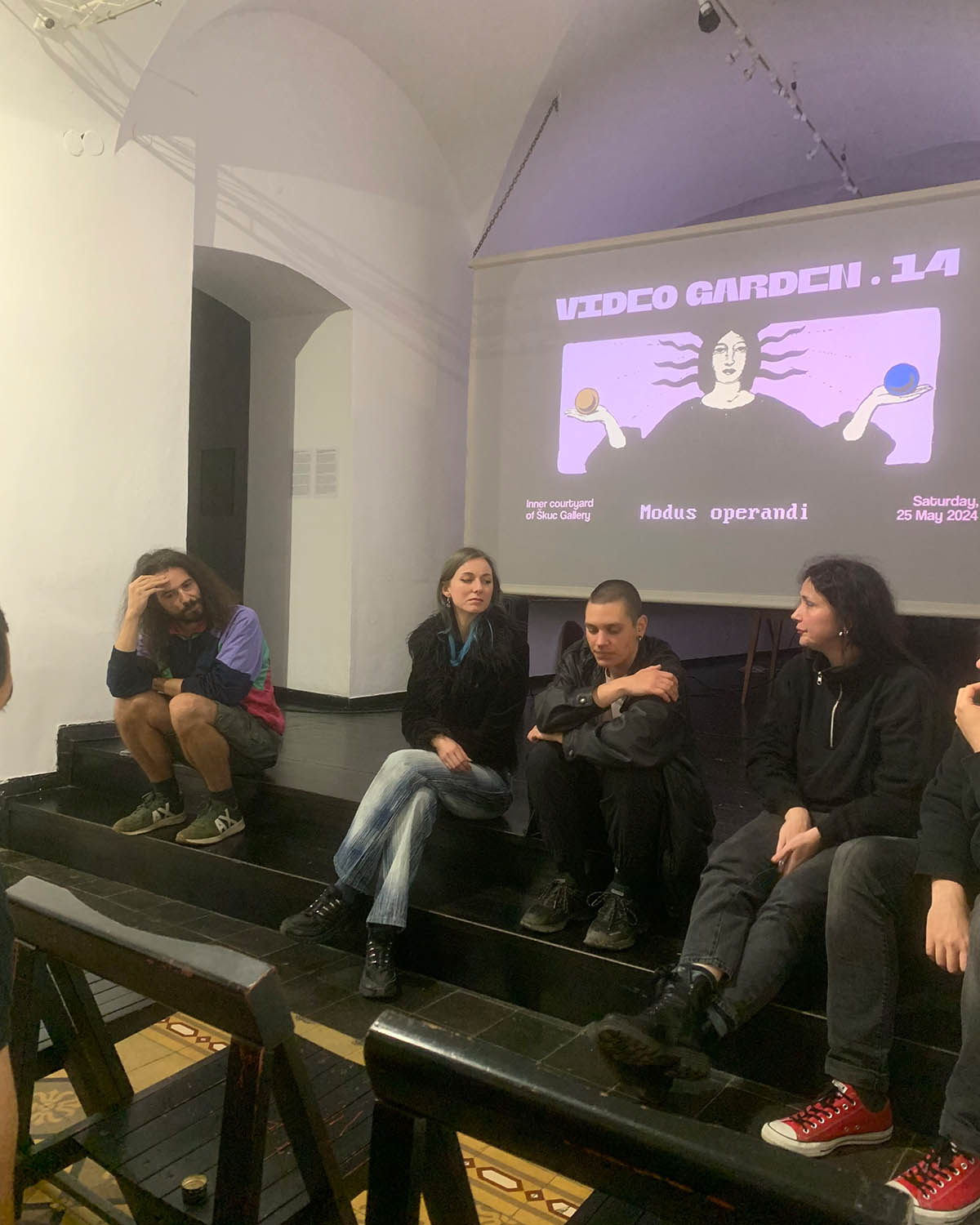
It is a very vibrant city, which at the same time feels very comfortable and slow-paced, and where it often seems like everyone knows each other. We hear from guests time and time again that there is too much going on to sum it up in one weekend. While the club scene is not necessarily something to brag about, we do have Metelkova, an autonomous social and artistic center, located in a former military barracks complex near the city center. Most alternative clubs are located there, where you can also find queer friendly clubs Tiffany and Monokel.
What are your expectations for this edition of the Ljubljana Art Weekend?
On the one hand, as always, we hope that this year’s programme will give a good insight into Ljubljana’s diverse visual art network of public institutions, galleries, and experimental project spaces, as well as spark some new collaborations and professional endeavors. But mostly we hope that visitors will be able to relax, enjoy their time off, and find comfort and kinship in an ever more alienating world.
Ljubljana Art Weekend
May 23 to 25, 2025
ETC. Magazine – www.etcmagazine.art
Ljubljana Art Weekend – www.ljubljanaartweekend.com



